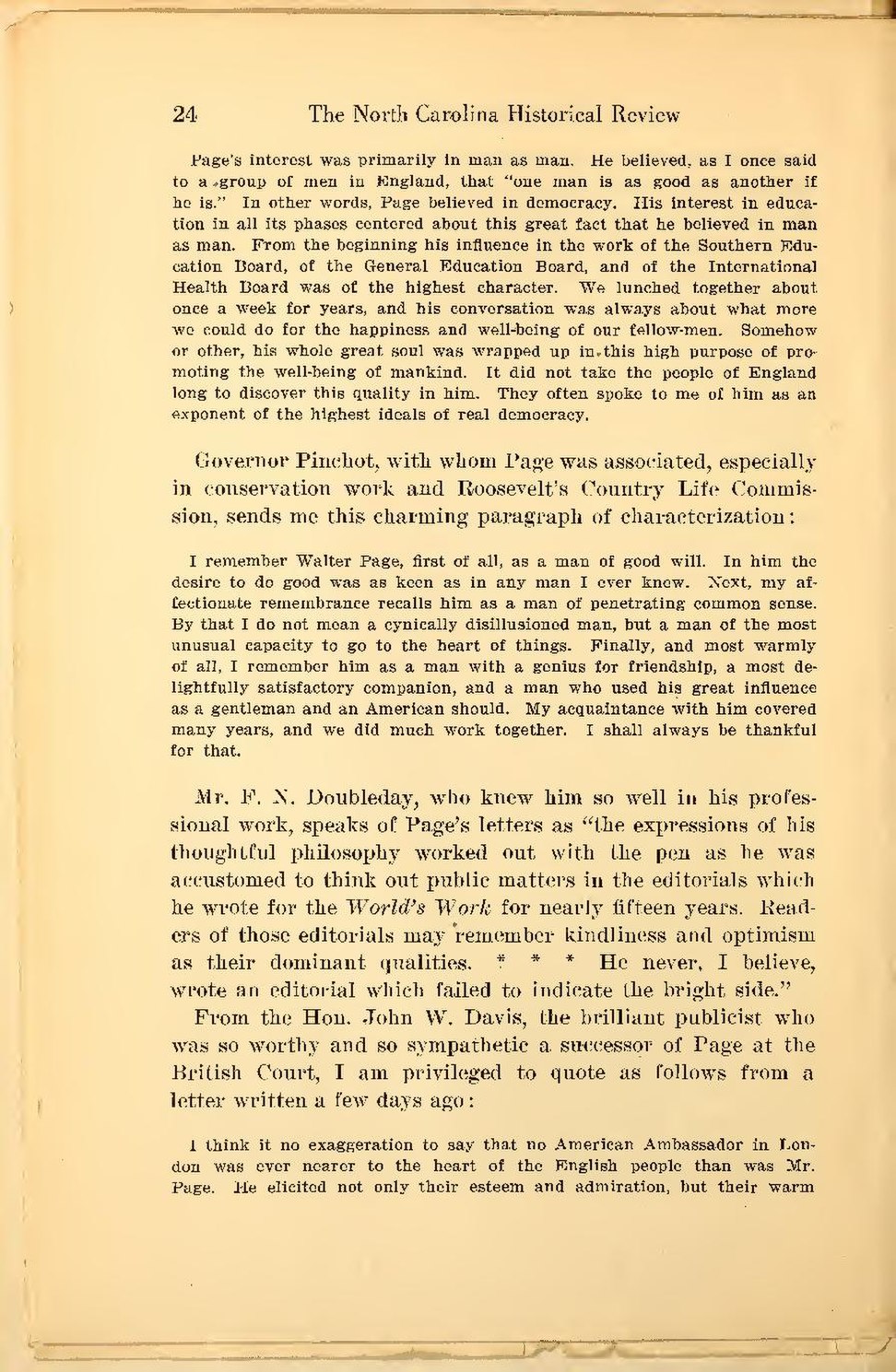Page's interest was primarily in man as man. He believed, as I once said to a group of men in England, that "one man is as good as another if he is." In other words, Page believed in democracy. His interest in education in all its phases centered about this great fact that he believed in man as man. From the beginning his influence in the work of the Southern Education Board, of the General Education Board, and of the International Health Board was of the highest character. We lunched together about once a week for years, and his conversation was always about what more we could do for the happiness and well-being of our fellow-men. Somehow or other, his whole great soul was wrapped up in this high purpose of promoting the well-being of mankind. It did not take the people of England long to discover this quality in him. They often spoke to me of him as exponent of the highest ideals of real democracy.
Governor Pinchot, with whom Page was associated, especially in conservation work and Roosevelt's Country Life Commission, sends me this charming paragraph of characterization:
I remember Walter Page, first of all, as a man of good will. In him the desire to do good was as keen as in any man I ever knew. Next, my affectionate remembrance recalls him as a man of penetrating common sense. By that I do not mean a cynically disillusioned man, but a man of the most unusual capacity to go to the heart of things. Finally, and most warmly of all, I remember him as a man with a genius for friendship, a most delighfully satisfactory companion, and a man who used his great influence as a gentleman and an American should. My acquaintance with him covered many years, and we did much work together. I shall always be thankful for that.
Mr. F. N. Doubleday, who knew him so well in his professional work, speaks of Page's letters as "the expressions of his thoughtful philosophy worked out with the pen as he was accustomed to think out public matters in the editorials which he wrote for the World's Work for nearly fifteen years. Readers of those editorials may remember kindliness and optimism as their dominant qualities. * * * He never, I believe, wrote an editorial which failed to indicate the bright side."
From the Hon. John W. Davis, the brilliant publicist who was so worthy and so sympathetic a successor of Page at the British Court, I am privileged to quote as follows from a letter written a few days ago:
